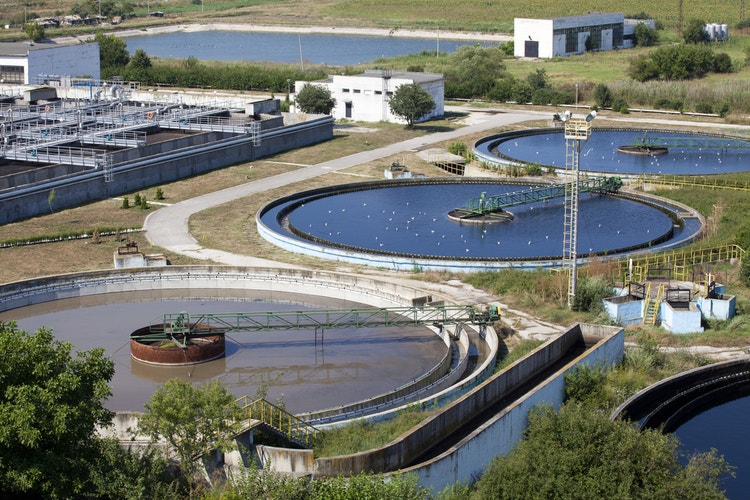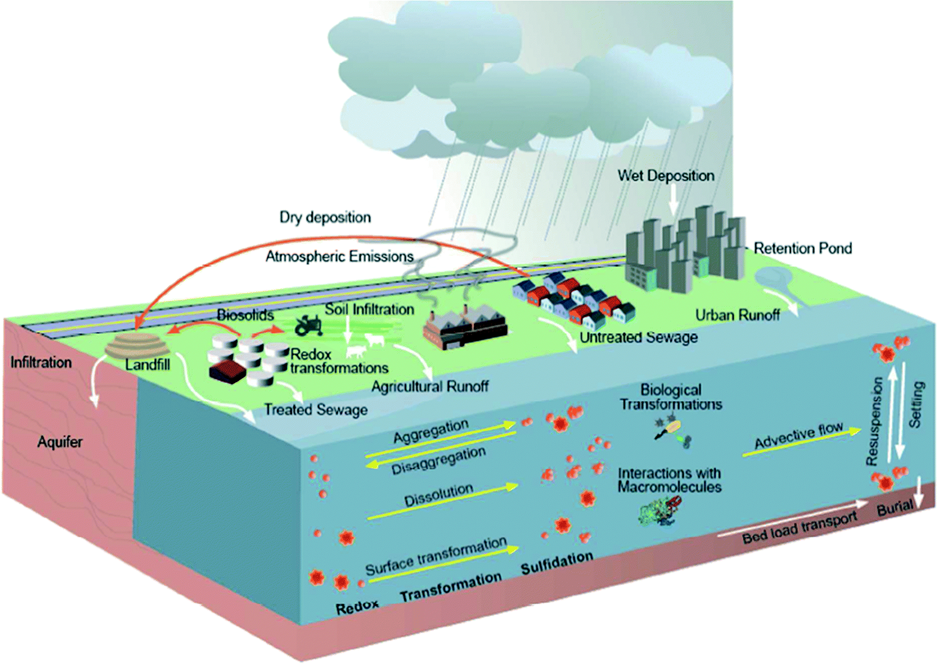What Are the Kinds Of Water Technology Startups Transforming the Sector?
The water Technology market is experiencing considerable change with a range of innovative start-ups. These business are introducing smart water monitoring solutions and progressed purification systems, among various other modern technologies. They address crucial issues such as water top quality, shortage, and performance. As these modern technologies advance, they pave the way for sustainable practices. The landscape is complex, raising inquiries about the most impactful technologies and their lasting effects.
Smart Water Management Solutions
Smart water management remedies stand for a transformative method to maximizing water use and circulation. These solutions utilize Technology to boost performance, reduce waste, and boost resource allowance. Startups in this sector utilize various devices, consisting of IoT tools, real-time monitoring systems, and data analytics, to allow towns and industries to track water usage more accurately. By making use of advanced formulas, these modern technologies can forecast demand patterns and determine prospective leaks, facilitating positive maintenance.

Advanced Purification and Purification Technologies
As water high quality issues expand, advanced purification and filtration modern technologies have actually become essential services for making sure clean and risk-free water materials. These advancements take advantage of innovative products and techniques to successfully eliminate pollutants, including bacteria, hefty metals, and microplastics. Startups in this field are creating systems that use nanotechnology, membrane filtering, and ultraviolet light therapy, improving performance and efficiency in water filtration processes.
These technologies can be customized for numerous applications, from local water treatment centers to private family systems, attending to the varied requirements of customers and industries. Many firms concentrate on energy-efficient remedies, thus reducing the environmental influence of water therapy. The increase of wise filtration systems, which integrate data and sensing units analytics, allows for real-time tracking and administration of water high quality. On the whole, these advanced innovations play a substantial duty in safeguarding public health and maintaining valuable water sources.
Sustainable Desalination Techniques
Sustainable desalination techniques are getting attention as viable remedies to water deficiency. By integrating renewable resource resources and employing ingenious filtration modern technologies, these strategies intend to reduce environmental influences while improving efficiency. Exploring these developments reveals considerable possibility for transforming seawater into a sustainable freshwater resource.
Renewable Resource Assimilation
While the worldwide demand for freshwater proceeds to climb, innovative startups are exploring renewable resource assimilation to boost lasting desalination methods. These business are taking advantage of solar, wind, and various other eco-friendly power sources to power desalination procedures, considerably decreasing reliance on nonrenewable fuel sources. By making use of eco-friendly power, start-ups aim to make desalination much more eco-friendly and economically practical. Additionally, some are establishing hybrid systems that incorporate conventional desalination innovations with renewable power options, optimizing effectiveness and decreasing carbon footprints. These developments not just address water scarcity yet likewise add to a much more sustainable energy landscape, showcasing the potential harmony in between water Technology and renewable resource. As these startups grow, they play a crucial function in forming the future of lasting water management.
Ingenious Filtration Technologies
Ingenious filtering modern technologies are arising as a crucial element in the pursuit for lasting desalination methods. These developments concentrate on boosting efficiency and reducing energy usage in the desalination procedure. Startups are developing unique membranes that significantly boost salt denial rates while decreasing fouling, which traditionally hinders performance. Methods such as onward osmosis and bio-inspired filtration systems are acquiring grip, using ecologically friendly alternatives to traditional techniques. In addition, integrating nanotechnology into purification products improves their performance, enabling for reduced operational expenses. The drive in the direction of sustainability is likewise motivating research study right into crossbreed systems that incorporate multiple filtration approaches, thus enhancing water top quality and resource healing. As these technologies develop, they guarantee to reinvent water treatment and availability worldwide.
Water High Quality Surveillance and Analytics
Water quality monitoring and analytics are progressively driven by innovative sensor modern technologies that give essential insights right into water security. These advancements make it possible for real-time data analysis, enabling immediate reactions to potential contamination. Additionally, the application of predictive analytics enhances the ability to anticipate water top quality fads, inevitably enhancing public health and wellness and source management.

Innovative Sensor Technologies
As the need for risk-free and clean water increases, sensor technologies for keeping an eye on water high quality have emerged as necessary tools in resolving this difficulty. These ingenious sensors are designed to detect a vast array of impurities, including heavy metals, bacteria, and chemicals, giving real-time data on water purity. The assimilation of innovative products and miniaturized parts has actually led to extremely sensitive read review tools that can run in diverse atmospheres, from metropolitan systems to remote water sources. Furthermore, many start-ups focus on developing IoT-enabled sensing units that facilitate remote surveillance, enabling aggressive monitoring of water sources. By improving the accuracy and accessibility of water quality information, these modern technologies play a vital function in ensuring public health and ecological sustainability.
Real-Time Information Analysis
Improvements in sensing unit modern technologies have paved the means for advanced real-time information analysis systems in water quality monitoring (Water Technology Startups). These systems make it possible for constant analysis of numerous water top quality parameters, such as turbidity, pollutant, and ph levels, giving prompt understandings right into water problems. Startups in this field take advantage of cloud computer and artificial intelligence algorithms to process substantial quantities of data efficiently. This real-time analysis enables for swift detection of anomalies and possible risks, ensuring prompt responses to water quality problems. Additionally, easy to use dashboards existing information visually, making it obtainable to stakeholders, including communities and ecological companies. Consequently, these advancements promote boosted decision-making and positive management of water sources, promoting public wellness and environmental sustainability
Anticipating Analytics Applications
While real-time data analysis gives immediate insights into water quality, predictive analytics applications take an aggressive approach by anticipating prospective issues before they emerge. These applications make use of historic data and sophisticated algorithms to determine trends and patterns in water quality metrics, permitting very early treatment. Start-ups in this field utilize machine understanding and large data analytics to forecast contamination events or equipment failings, enabling water administration agencies to assign sources much more effectively. Furthermore, predictive analytics can improve regulative compliance by expecting high quality problems that may bring about offenses. By applying these modern technologies, companies can significantly boost their action times, reduce operational prices, and ultimately ensure more secure water for neighborhoods. This forward-thinking approach is necessary for modern-day water management methods.
Drip Detection and Infrastructure Administration
Effective leakage detection and infrastructure administration are vital for preserving the stability of water supply, particularly as maturing infrastructure ends up being a lot more widespread. Start-ups in this field are leveraging sophisticated modern technologies such as acoustic sensing units, satellite imagery, and expert system to identify leakages quickly and accurately. By using real-time information, these remedies help utilities keep an eye on pipeline conditions and optimize maintenance schedules.
Innovative startups are likewise developing predictive analytics devices that examine historical information to forecast potential failures, permitting proactive facilities management. On top of that, combination click to read with geographic info systems (GIS) improves the visualization of water distribution networks, helping with much better decision-making.
These modern technologies not just decrease water loss however likewise decrease functional costs and enhance service reliability. As the demand for effective water administration grows, leakage discovery and framework administration startups are coming to be essential gamers in guaranteeing lasting water systems for the future.
Rainwater Harvesting and Reuse Equipments
Rainwater harvesting and reuse systems have actually emerged as innovative solutions to address water deficiency and promote sustainable resource monitoring. These systems capture, store, and make use of rain for different applications, considerably minimizing reliance on standard water sources. By accumulating rainwater from rooftops or various other surface areas, these modern technologies enable organizations and neighborhoods to use an or else squandered source.
Startups in this market emphasis on developing reliable collection systems, filtration techniques, and storage space remedies that optimize water top quality and use. Advanced keeping track of modern technologies are likewise incorporated to guarantee peak system efficiency and upkeep. In addition, assimilation with wise home systems permits real-time administration and reliable Continued water use.
These campaigns not just contribute to water preservation but likewise reduced energy prices for users. As awareness of ecological challenges grows, rainwater harvesting and reuse systems stick out as sensible, sustainable options efficient in changing water management methods throughout numerous regions.
Agricultural Water Efficiency Innovations
As worldwide demand for food continues to increase, agricultural water effectiveness innovations have become crucial in ensuring sustainable farming methods. Start-ups are leveraging Technology to establish options that maximize water use in agriculture. Advanced watering systems, such as drip and accuracy watering, enable farmers to provide water directly to plant origins, lessening waste. In addition, dirt dampness sensors and climate analytics devices aid farmers monitor conditions in real-time, allowing them to water just when needed.
Furthermore, the assimilation of expert system and artificial intelligence boosts decision-making, enabling much more reliable water administration methods. These innovations not just boost crop returns however also decrease water consumption, which is crucial in water-scarce areas. By embracing these innovations, farming stakeholders can add to a more sustainable food system, resolving both ecological concerns and the expanding worldwide population's demands. The future of agriculture depends upon these water efficiency technologies, marking a vital shift in farming methods.
Frequently Asked Concerns
Just How Do Water Technology Startups Secure Funding for Their Technologies?
Water Technology start-ups secure funding via various channels, consisting of endeavor resources, government gives, crowdfunding systems, and partnerships with well-known business. These avenues enable them to introduce and scale their solutions to deal with pushing water challenges.
What Difficulties Do Start-ups Face in the Water Technology Industry?
Startups in the water Technology field face numerous difficulties, including governing difficulties, high funding needs, competition from established firms, technical complexity, and the need for public recognition and acceptance of ingenious remedies in water monitoring.
Exactly How Can Consumers Gain From Water Technology Innovations?
Customers can gain from water Technology advancements via boosted water top quality, boosted access, price savings, and enhanced preservation efforts. These developments result in much healthier neighborhoods, sustainable practices, and greater resilience against water deficiency and ecological obstacles.
What Role Do Federal Government Regulations Play in Water Technology Startups?
Government policies considerably affect water Technology start-ups by establishing conformity criteria, incentivizing development via subsidies and gives, and shaping market entry techniques. These regulations can either foster development or enforce obstacles depending on their intricacy and enforcement.
Just How Do Startups Measure the Influence of Their Technologies on Water Preservation?
Start-ups gauge the effect of their innovations on water conservation via metrics such as water cost savings, performance renovations, customer adoption prices, and eco-friendly benefits, frequently making use of information analytics and pilot jobs to validate their performance. (Water Technology Startups)
The increase of smart water administration services reflects an expanding recognition of the need for sustainable water techniques, inevitably adding to the durability of water systems worldwide. As water top quality concerns expand, advanced purification and purification technologies have arised as vital solutions for making sure risk-free and clean water supplies. These advancements not just address water scarcity but likewise add to a much more sustainable energy landscape, showcasing the possible synergy in between water Technology and renewable energy. As the need for risk-free and clean water escalates, sensor modern technologies for keeping track of water high quality have emerged as vital tools in addressing this obstacle. Customers can profit from water Technology developments through enhanced water top quality, enhanced ease of access, price savings, and enhanced conservation efforts.